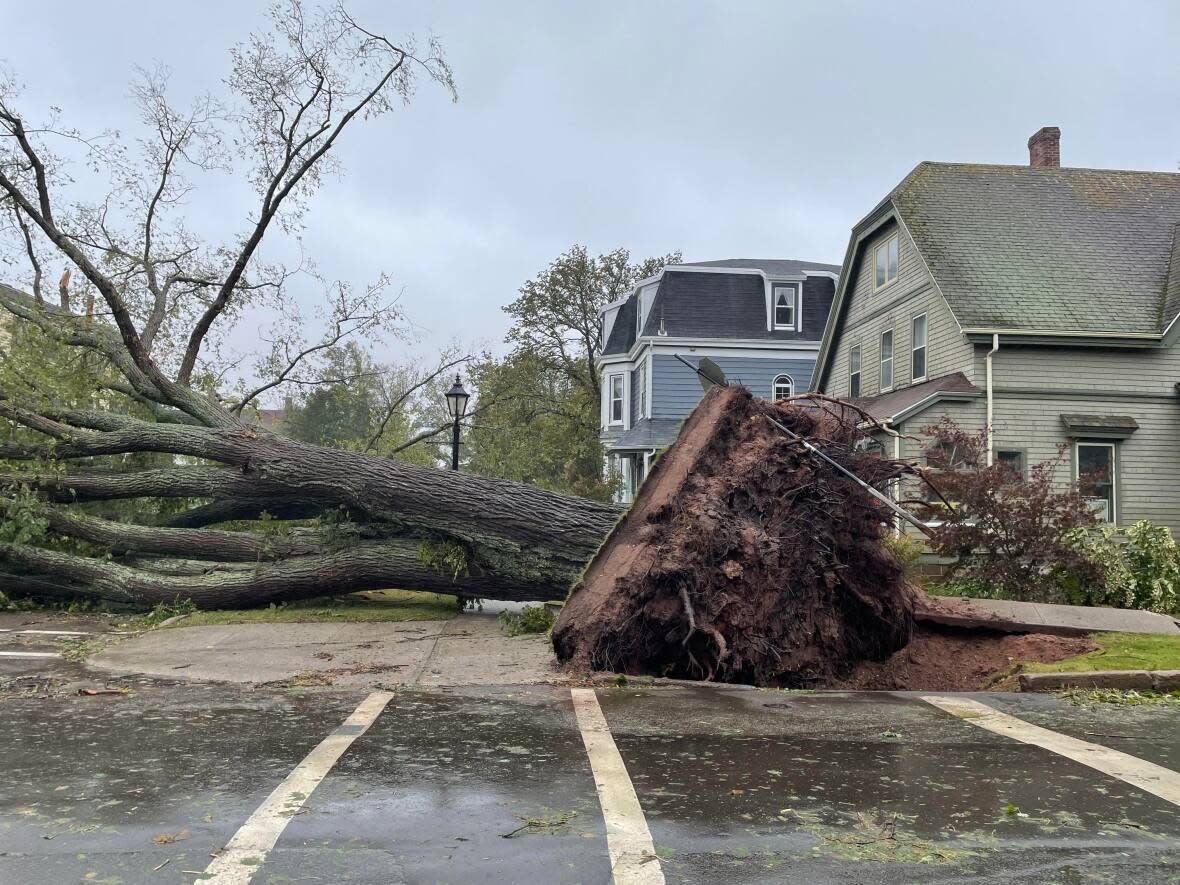Wednesday's alert will be just a test, but EMO reminds Islanders to stay prepared

Don't panic when you hear an emergency alarm go off on your phone, TV and radio this Wednesday at 12:55 p.m. AT.
It will be a test tied to Emergency Preparedness Week across Canada.
"We don't want people to be alarmed, but we want people to take note of it because during a real event, that's what it's going to sound like and that's what you'll hear," said Tanya Mullally, provincial emergency management co-ordinator with the P.E.I. Emergency Measures Organization.
The alerts happen twice a year across the country — once in the fall and once in the spring — but P.E.I. decided to opt out of the alert last November to spare residents the trauma of hearing another alert so close to post-tropical storm Fiona, Mullally said.
"We had issued out two alerts during that time. So we just felt it was probably well tested then. We didn't need to redo it about a month after that event."

The "event" left a trail of devastation across the Island, of course. All of P.E.I. lost power, with some homes out for up to three weeks.
Fiona may have taught residents to be prepared for life without electricity in hurricane season, but Mullally said people should be prepared for other types of emergencies — such as a major winter storm, fire or flood — any time of the year.
"Emergencies happen every single day, and whether or not it's in the province or across the country, it's our ability to respond to those that will really dictate whether or not that becomes a more significant event or a disaster."

The EMO is distributing a booklet to help Islanders prepare. It focuses on knowing the risks, making a plan to share with housemates, and offering suggestions for creating an emergency kit.
"We have lots of people that have moved to P.E.I. over the past several years and may not be familiar with what a hurricane or an ice storm or a severe blizzard feels like and the experiences around that. So understanding all those components is really important."


